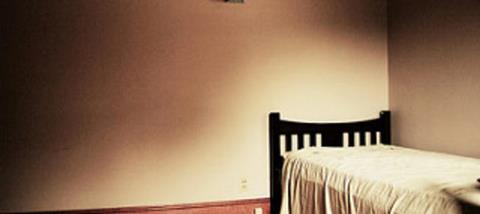
We’ve all had one of those tough days where we want to put our head under the covers, forget the pressures of life and declare it a Duvet Day.
A bed is the most basic of refuges, representing somewhere safe to rest, a place where there are no demands made. We revert to childhood and take time out from responsibility.
Yet the shocking truth is this: in the UK, in 2017, tens of thousands are so poor they don’t have a bed.
At Christians Against Poverty, we made this discovery during our annual survey of debt clients that every year has shown the percentage suffering sleepless nights due to the stress.
This time, we also asked if they owned basic furniture or rented it and, even after 21 years of debt counselling, the results were a shock to us. More than one in ten (11%) said they had no bed.
Another six per cent were renting a bed, something that we’re pretty sure most of the population won’t have even considered as an option. One in three were missing a bed, fridge, freezer, washing machine or sofa.
So, how does someone get into this state of outright destitution?
One man suffered a close bereavement, then his relationship broke down and he had to leave work to look after his young family. Eviction followed his dramatic drop in income and he and his children were re-homed into an empty property.
He said: "At the lowest point, I was kissing my seven-year-old daughter goodnight as she lay on a bin bag full of clothes, with a coat for a blanket. I was desperately trying to comfort her by saying everything would be alright. The only problem was, I didn’t have a clue how I was going to keep my promise."
After three months of getting by, Social Services referred him to CAP where, like everyone else, he received a home visit, in-depth debt counselling and the incomparable love of the local church.
Re-homing into an empty property is commonplace.
The Department for Work and Pensions used to have a social fund for emergency cases such as this but in 2013 it was devolved to local authorities and some councils have continued with the fund while others have been forced to strip it back.
If you can’t afford to buy a bed – and can’t find emergency charitable help – furniture rental companies are an option. However, a quick search on Google reveals that renting a bed works out to be around six times as expensive as buying one outright. This is part of the well-documented poverty premium, the injustice that it costs more to live, if you are on a low income.
As a nation, poverty divides us – those who make political gain from it, those who get angry and blame rather than do something themselves while others chose not to believe it happens at all.
Where does poverty begin and end? What constitutes destitution?
The Joseph Rowntree Foundation has this handy chart showing the types of UK poverty that exist With an average household income of around £14,000 annually, six in ten of CAP clients fall below the poverty line, with many destitute.
CAP’s frontline staff, based at partner churches across the UK see the reality every day. We meet people living difficult lives, making impossible choices and, we can assure you, just because this poverty happens behind closed doors, it doesn’t mean it isn’t happening.
So, tonight, when you hop in under your duvet, pray for those who don’t have that luxury – and ask God what you can do to help them.
Marianne Clough is a former newspaper journalist who now works for Christians Against Poverty. For more information visit CAPuk.org
Click here to request a free copy of Premier Christianity magazine



























